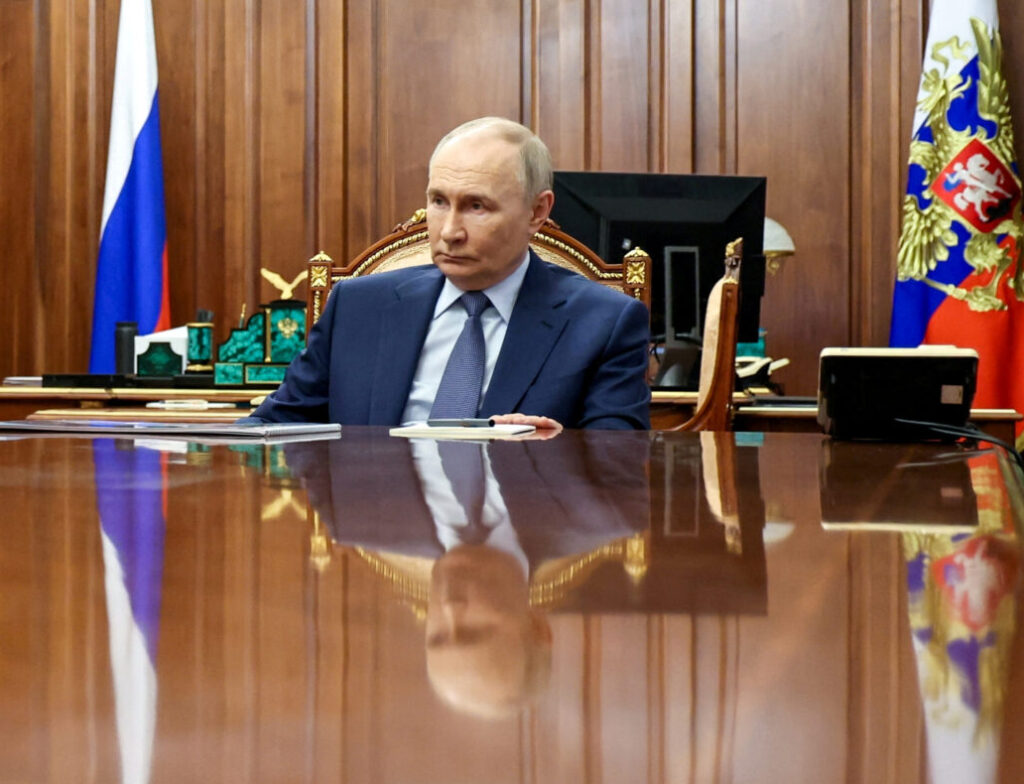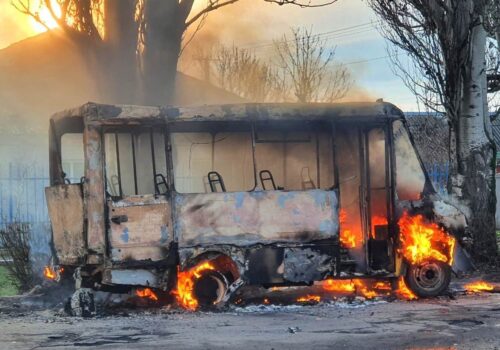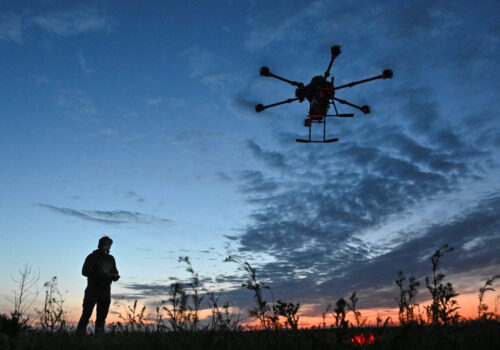Russian and Ukrainian delegations failed to achieve any meaningful breakthroughs when they met for peace talks in Istanbul on Monday. The event was not a complete waste of time, however. Aside from agreeing on another welcome round of prisoner swaps, the two sides also exchanged peace proposals that confirmed the complete lack of middle ground for any kind of meaningful compromise to end the fighting.
While Ukraine’s proposal laid out a fairly pragmatic vision based on battlefield realities and security concerns, Russia presented punitive peace terms that would reestablish Kremlin control over Kyiv and doom the postwar Ukrainian state to a slow but inevitable death. This uncompromising Russian position should serve as a wake-call for anyone who still believes Putin is negotiating in good faith. In reality, the Russian dictator is more determined than ever to destroy Ukraine, and is merely exploiting US-led peace talks in order to strengthen his hand and divide the West.
Stay updated
As the world watches the Russian invasion of Ukraine unfold, UkraineAlert delivers the best Atlantic Council expert insight and analysis on Ukraine twice a week directly to your inbox.
The demands unveiled by the Russian delegation this week in Istanbul came as no surprise and closely mirrored the conditions outlined on numerous prior occasions by Putin and other Kremlin leaders. Nevertheless, at a time when US President Donald Trump is publicly pressing for progress toward peace, the Russian decision to deliver such a maximalist memorandum sent a clear message of defiance to Washington DC.
As expected, Moscow reiterated its call for Ukraine to withdraw completely from four Ukrainian provinces that Russia currently claims as its own but has been unable to fully occupy. This would oblige the Ukrainian authorities to hand over a number of major cities and condemn millions of their compatriots to indefinite Russian occupation. Kyiv would also be expected to officially cede these regions together with Crimea, paving the way for international recognition of Russia’s conquests.
This crushing territorial settlement is only one aspect of Russia’s vision for the comprehensive dismantling of Ukrainian statehood. In line with Putin’s peace terms, Ukraine would be forced to accept limitations on the size of its army and on the categories of weapons it is allowed to possess. The country would be also be barred from joining any military blocs or concluding alliances with foreign nations. It does not take much imagination to guess what Putin has in mind for Ukraine once it has been successfully disarmed and internationally isolated.
Nor is that all. The Kremlin’s conditions actually go much further and aim to transform Ukraine from within in ways that would erase Ukrainian identity along with the country’s political independence. Moscow’s memorandum called on Ukraine to grant Russian the status of official state language, reinstate the privileges of the Russian Orthodox Church, and adopt a Kremlin-friendly version of Ukrainian history. Meanwhile, all so-called “nationalist” Ukrainian political parties would be banned, paving the way for the installation of a puppet regime in Kyiv.
Eurasia Center events

On the morning after this week’s bilateral meeting, former Russian President Dmitry Medvedev confirmed the true objective of Russia’s participation in peace talks. “The Istanbul talks are not for striking a compromise peace on someone else’s delusional terms,” commented Medvedev, who currently serves as deputy chairman of Russia’s powerful National Security Council. Instead, Medvedev stated that Russia’s goal was to secure victory and ensure “the complete destruction of the neo-Nazi regime,” which is widely recognized as Kremlin code for the Ukrainian state. “That’s what the Russian memorandum published yesterday is about,” he noted.
Medvedev’s frank appraisal of the Russian position won him sarcastic praise from US Senator Lindsey Graham. “Congratulations to Mr. Medvedev for a rare moment of honesty coming from the Russian propaganda machine,” commented Trump ally Graham. “I appreciate you making it clear to the world that Putin and Russia are not remotely interested in peace.”
It is hard to argue with Graham’s assessment. For the past few months, Putin has gone out of his way to demonstrate that he has absolutely no intention of ending the war. While Ukraine has accepted a US proposal for an unconditional ceasefire, Putin has repeatedly refused to do so. Instead, he has engaged in transparent stalling tactics that make a mockery of the entire peace process.
Away from the negotiating table, Putin has dramatically increased drone and missile attacks on Ukrainian cities, killing and wounding hundreds of civilians. On the battlefield, his armies are currently engaged in the early stages what is shaping up to be one of the biggest Russian offensives of the entire war. These are not the actions of a man who seeks peace.
After this week’s fresh confirmation of Moscow’s undiminished imperial ambitions in Ukraine, it is now surely time to abandon any lingering delusions and accept that the Russian dictator will not stop until he is stopped. Putin believes he is on a messianic mission to extinguish Ukrainian statehood and revive the Russian Empire. He currently thinks he is winning this historic struggle and will not be swayed by Trump’s comparatively trivial talk of tariffs and trade deals.
The only thing that can change Putin’s mind is Western strength. As long as Putin is confident of eventual victory, he will continue. But if the alternative to a peace deal is a potentially crushing defeat, he may reconsider. To achieve this change, Western leaders must demonstrate a degree of collective resolve that has often been absent over the past three years. They must sanction Russia to the max and arm Ukraine to the teeth. This will require considerable political will and good old-fashioned courage in Western capitals. Ukraine will do the rest.
Peter Dickinson is editor of the Atlantic Council’s UkraineAlert service.
Further reading
The views expressed in UkraineAlert are solely those of the authors and do not necessarily reflect the views of the Atlantic Council, its staff, or its supporters.

The Eurasia Center’s mission is to enhance transatlantic cooperation in promoting stability, democratic values, and prosperity in Eurasia, from Eastern Europe and Turkey in the West to the Caucasus, Russia, and Central Asia in the East.
Follow us on social media
and support our work
Image: Russian President Vladimir Putin attends a meeting with Presidential Commissioner for Children's Rights Maria Lvova-Belova in Moscow, Russia June 2, 2025. Sputnik/Gavriil Grigorov/Pool via REUTERS




